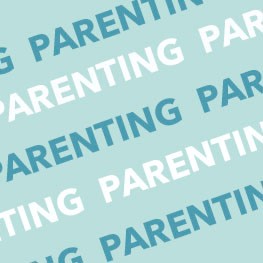-
Written by Patricia Morgan
Before exploring the ABCs, let us establish the definition of discipline. It’s not nagging. It’s not punishing. It’s not lecturing or moralizing. It’s not losing our cool and having a hissy fit. Discipline in its simplest terms means to teach. Here is a definition from the Webster’s Dictionary: Dis’ci’pline, noun: The treatment suited to a disciple or learner; education; development of the faculties by instruction and exercise: training, whether physical, mental, or moral.
To discipline means to provide parental leadership by establishing a logical sense of routine and order that respects differences in age, skill, ability and experiences. This seems like a fine idea, yet why would children choose to challenge the parameters parents work so hard to maintain?
Children act inappropriately for a number of reasons. The most common is to attract attention. Who doesn’t want to be seen, heard and acknowledged? If children don’t receive focused mom and pop attention from adhering to family limits, they will get it by flailing and wailing. Other reasons children buck the parental system include wanting to get revenge, wanting to flex their power muscles, feeling angry, feeling unloved, feeling tired or irritable or simply experiencing a hormone surge of insanity.
THE As OF DISCIPLINE
- ACCURATELY define your parental goal:
- What is your long-term goal as a parent? Hopefully it is something like guiding your children to become healthy, compassionate and contributing citizens.
- ACCEPT responsibility for your part of the challenge:
- Perhaps you have not kept your agreements when you said you were no longer going to remind your children to take their lunch to school.
- ADDRESS and name the problem:
- Describe the problem in behavioural terms - what you see and hear. “Today I saw you watch two hours of TV while doing five minutes of homework and doing no chores.”
THE Bs OF DISCIPLINE
- BEFORE disciplining consider these factors:
- Do I model the behavior I promote? If you want your children to listen respectfully to you, do you model that? Children’s main learning comes from their main role models – you!
- How are you doing with your diet, respectful language, exercise, sharing feelings, selective and wise TV watching and rewarding yourself for a job well done?
- Do you provide age-appropriate choices? Most of us feel depressed when we don’t have choices. With a younger child ask, “Do you want your juice in the green or red glass?” With a teen, you might negotiate chores, “Do you choose vacuuming the house or attending to the bathroom on our cleaning days?”
- Are your household rules age-appropriate? Bedtime will vary with need and age. Involve older children in establishing rules. They will be more committed to decisions in which they have input.
- Are the consequences of following the rules or breaking the rules clear?
- BE LOVINGLY FIRM:
- Can your children depend and count on you to carry through on your end of agreements – the enjoyable and the inconvenient follow-throughs?
THE Cs OF DISCIPLINE
- CLEARLY COMMUNICATE:
- Do you encourage and celebrate the behaviours you want? “Yay! The dishwasher is empty. Thank you so much. I love coming into the kitchen to cook when things are orderly and in place.”
- Do you put out more energy focusing on the behaviors you don’t want or on the behaviors you do want? Remember that what you focus on tends to expand.
- Are the rules and expectations of the household clear and describable? There are over 30 rules in most homes to successfully get through a meal. What are they at your house?
- Keep “No” and “Stop” for emergencies so they will be well-heard and given appropriate attention.Use the ‘Grandmother Law’ as an effective cause and effect teaching tool. “Yes, after your homework is complete, you may turn on the television.”
- CREATE CONSEQUENCES that are logical and meaningful:
- Logical consequences teach children that for every action there is a consequence. They help children feel safe and supported. They give children a sense of predictability and choice; that is if parents follow through with their end of the agreement.
- Are your consequences planned and discussed ahead of time? This allows children to make a choice of appropriate behavior or not. Are the positive consequences of choosing appropriate behavior as clear as the inconvenient or negative consequence? “When you have your pyjamas on and your teeth brushed, I have time to read to you the whole story.”
- Do you involve older children in creating their logical consequence? Asking, “What is your understanding of our agreement?” helps cement for parents and children that behavior is about choice.
- Do you use consequences that allow you to take precise action such as removing a service or a privilege? Parents are required to provide basic shelter, food, clothing, guidance and love. The rest, including cell phones, eating out, TV, video games, chauffeuring and designer jeans are all optional. Parents have more influence than they often realize.
- Do you tend to overuse time-outs? Often it’s the parent who would benefit from a time-out as a breather from frustration.
- Are your family consequences reasonable, respectful, age-appropriate and enforceable – meaning that you can (yet again) follow through?
Patricia is an author and expert in strengthening resilience in individuals and organizations. She is an international speaker with a Master’s Degree in psychology. She can be reached at 403-242-7796 or This email address is being protected from spambots. You need JavaScript enabled to view it. or visit solutionsforresilience.com.
